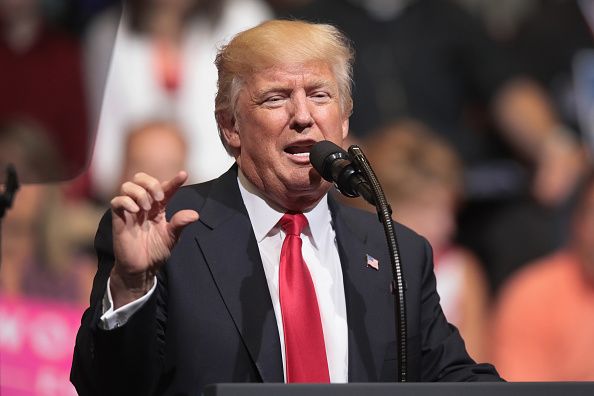
What does it portend that President Trump spent his Christmas in the White House, home alone, without even his family? How prophetic that in 2016, then-President-elect Trump revealed to The Hill that his two favorite all-time films are “Citizen Kane” and “Sunset Boulevard.” His taste cannot be faulted as these Oscar winning films ranked as # 1 and # 12 respectively on the American Film Institute’s list of 100 best films of the century. Through their angry self-destructive impulses, they were the architects of their own misfortunes. They both depict the late career collapse of mercurial exploitive extreme narcissists who retreated into the isolation of their grotesquely excessive palaces. The demagogic media baron Charles Foster Kane was furious over his lost public support as fallen silent screen star Nora Desmond was furious over her lost audience appeal.
I have been studying self-styled heroism and CEO exits for over 35 years as represented by my 1988 best seller The Hero’s Farewell (Oxford University Press). We are watching a driver out of control but not as onlookers but as passengers. It does not take a psychiatrist to tell us we are witnessing self-destructive behavior from our commander-in-chief. This is the pattern in my studies of a group I termed exiting “monarchs,” who will not leave office gracefully. Many entrepreneurs who hit a wall begin to destroy what their leadership created. Some wince at Trump’s reckless conduct saying he trips over his success through his temperament. Some say Trump’s angry tantrum style of leadership has only left a trail of destruction. Both Trump “true believers” see this as plainly as do Trump “haters,” but the consequences to our nation are considerable for all camps—and spiraling out of control.
It is ironic to see this pattern in our first CEO president as virtually any board of directors would have acted by now with an intervention and likely removal. Congress does not act as many Republicans see their fate tied to Trump and many Democrats, soon-to-return to power, do not want to be defined by impeachment—especially a possibly failed one. Robert Mueller’s report, if public, may make that necessary but this is unknown. Most business leaders are torn now fearing domestic political instability as the greatest threat to US financial markets.
Trump’s kaleidoscope of setbacks, despite the bravado to the contrary, have led him to increased isolation. The year 2018 closes with a frustrated President Trump hitting Congressional walls over erecting a wall, judicial reversals of his decrees, and with such erratic domestic and diplomatic tantrums that he already has set an historic record for cabinet and top staff exits losing over 25 top administration officials in just two years. All this is matched by a government shut down and the worst December on financial markets since the Great Depression.
Buoyed by a surge of forty new House members, Democratic party leaders have strengthened their outrage. Despite historically low unemployment, they are now preparing to attack failures of Trump tax reform, which led to enrichment of the top 1 percent of the electorate but did not to lead to the promised reinvestment in domestic industries or significant sustained wage gains and hurting middle class workers with the cutback on state and local tax deductions. The unrest has also been stoked by a series of massive layoffs at large manufacturers in part triggered by retaliation from trading partners due to confusing tariff penalties.
Top officials of wide ranging global allies from such nations as Germany, France, Pakistan, and Israel, reacted with alarm and confusion over Trump’s tweet announcing a surprise retreat of forces working with allies in Syrian conflict and in Afghanistan along with the subsequent resignation of revered Secretary of Defense General James Mattis.
Despite the initial public support of the business community, who rejoiced over tax reform and promised regulatory rollbacks, business leaders are now more openly critical. Industry leaders who were once fearful of White House reprisals for dissent from sequential hostile presidential tweets storms, are now more courageously speaking out. Last June 69 percent of major CEOs we at Yale surveyed reported that North Korean President Kim had gotten the best of President Trump in their much promoted summit meeting. In December, this was reinforced in another Yale survey of 134 top business leaders who felt the same way about President Trump being outmaneuvered by Russian President Putin. Fully three quarters of them felt they had to apologize for his messaging to global business partners over Trump’s messages and that 87 percent believed Trumps negotiating style had cost the nation the trust of its allies.

Chief Executive Group exists to improve the performance of U.S. CEOs, senior executives and public-company directors, helping you grow your companies, build your communities and strengthen society. Learn more at chiefexecutivegroup.com.
0

1:00 - 5:00 pm
Over 70% of Executives Surveyed Agree: Many Strategic Planning Efforts Lack Systematic Approach Tips for Enhancing Your Strategic Planning Process
Executives expressed frustration with their current strategic planning process. Issues include:
Steve Rutan and Denise Harrison have put together an afternoon workshop that will provide the tools you need to address these concerns. They have worked with hundreds of executives to develop a systematic approach that will enable your team to make better decisions during strategic planning. Steve and Denise will walk you through exercises for prioritizing your lists and steps that will reset and reinvigorate your process. This will be a hands-on workshop that will enable you to think about your business as you use the tools that are being presented. If you are ready for a Strategic Planning tune-up, select this workshop in your registration form. The additional fee of $695 will be added to your total.

2:00 - 5:00 pm
Female leaders face the same issues all leaders do, but they often face additional challenges too. In this peer session, we will facilitate a discussion of best practices and how to overcome common barriers to help women leaders be more effective within and outside their organizations.
Limited space available.

10:30 - 5:00 pm
General’s Retreat at Hermitage Golf Course
Sponsored by UBS
General’s Retreat, built in 1986 with architect Gary Roger Baird, has been voted the “Best Golf Course in Nashville” and is a “must play” when visiting the Nashville, Tennessee area. With the beautiful setting along the Cumberland River, golfers of all capabilities will thoroughly enjoy the golf, scenery and hospitality.
The golf outing fee includes transportation to and from the hotel, greens/cart fees, use of practice facilities, and boxed lunch. The bus will leave the hotel at 10:30 am for a noon shotgun start and return to the hotel after the cocktail reception following the completion of the round.